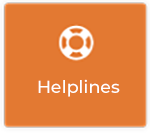Top Ten Internet Safety Myths
Here are the top ten internet safety myths according to the EU Kids Online researchers.
- Digital natives know it all: Only 36 per cent of 9-16-year-olds say it is very true that they know more about the internet than their parents. This myth obscures children’s needs to develop digital skills
- Everyone is creating their own content: The study showed that only one in five children had recently used a file-sharing site or created an avatar, half that number wrote a blog. Most children use the internet for ready-made content
- Under 13s can’t use social networking sites: Although many sites (including Facebook) say that users must be aged at least 13, the survey shows that age limits don’t work – 38 per cent of 9-12-year-olds have a social networking profile. Some argue age limits should be scrapped to allow greater honesty and protective action
- Everyone watches porn online: One in seven children saw sexual images online in the past year. Even allowing for under-reporting, this myth has been partly created by media hype
- Bullies are baddies: The study shows that 60 per cent who bully (online or offline) have themselves been bullied. Bullies and victims are often the same people
- People you meet on the internet are strangers: Most online contacts are people children know face-to-face. Nine per cent met offline people they’d first contacted online – most didn’t go alone and only one per cent had a bad experience
- Offline risks migrate online: This is not necessarily true. While children who lead risky offline lives are more likely to expose themselves to danger online, it cannot be assumed that those who are low-risk offline are protected while online
- Putting the PC in the living room will help: Children find it so easy to go online at a friend’s house or on a smartphone that this advice is out of date. Parents are better advised to talk to their children about their internet habits or join them in some online activity
- Teaching digital skills reduces online risk: Actually the more digital skills a child has, the more risks they are likely to encounter as they broaden their online experience. What more skills can do is reduce the potential harm that risks can bring
- Children can get around safety software: In fact, fewer than one in three 11-16 year-olds say they can change filter preferences. And most say their parents’ actions to limit their internet activity is helpful








